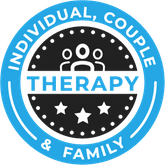Divorce & Blended Families
Changes to the family environment are often times very difficult for children, who thrive on structure and stability. But many families go through transitions, including parental separation, divorce, and re-marrying. Children and teenagers are still developing emotionally and mentally, making it difficult for them to fully understand the feelings and lifestyle changes associated with changes to the family unit.
Examples of common complications associated with divorce and family blending include:
- Parents/Stepparents who are not unified in raising children
- Step family members struggling with acceptance
- Children who are openly rebellious or disrespectful
- Feelings of inferiority or superiority among family members
- Feelings of depression and anxiety due to overwhelming stress or helplessness
Divorce
Divorce is not merely a decision between two people, but rather a life-change that affects the entire family. Every child copes with divorce differently according to personality, gender and age. Children experience divorce as a loss and must therefore go through a process of grieving to cope with the changes that it brings. This grieving process may consist of several stages, including denial, depression, and anger. Some children may believe that they must take sides or that they are somehow responsible for their parents’ divorce.
Blended Families
Many children of divorced parents must overcome a second obstacle if parents decide to remarry. New feelings and emotions can surface – often resulting in negative behaviors. The length of time between divorce and remarriage can be a significant factor as well. Children may find it difficult to accept a new stepparent, perhaps believing that he or she is attempting to take the place of a biological one. The situation may be further complicated if step-siblings are involved, as this can spawn jealousy or feelings that a parent or stepparent favors one child over another.
Therapy for Divorce and Blended Families
If you and your spouse have decided to divorce, therapy may help you learn how to support your children through the process that follows. This includes reassuring that your child that he/she is not responsible and preventing exposure to ill will between parents. Therapy may include you and your ex-spouse, as well as your child in order to facilitate open communication, ease anxieties, and assure your child that neither parent will ever leave him or her. You’ll also learn ways of maintaining normalcy and structure, as well as working together with your ex-spouse for the best interest of your child.
Therapy for blended families includes helping children understand and accept that new family units may not function the same as a previous one. Therapy also works to facilitate a healthy adjustment period, which can last many months or years. With time, parents and stepparents can learn to better communicate with children, establish healthy boundaries, demonstrate affection, relay a sense of security, and also learn how to respond to the day-to-day challenges associated with blending new family members into the same household.
If you have recently experienced a divorce or remarriage, this transition in your life may be marked by difficulty and frustrations. Contact our office to find out if divorce and family blending therapy could be right for you.




